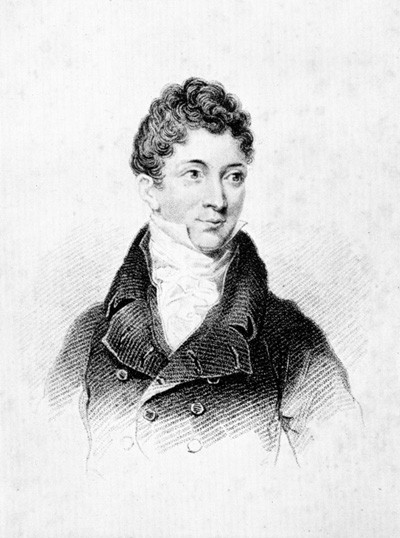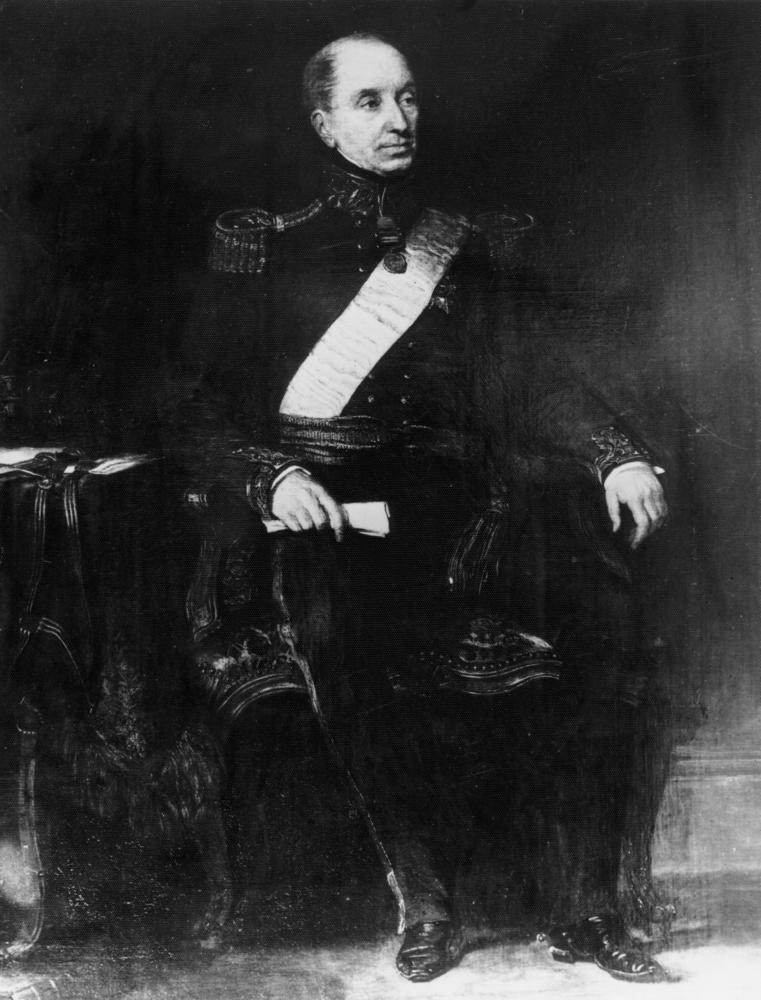
The life of James Hardy Vaux is extraordinary on many counts. He was intelligent and, by the standards of the time, well-educated. He was given many opportunities to improve himself but was transported 3 times and committed a variety of crimes in between.
Born in Surrey 1882, he was transported to Australia: on the Minorca 1801; on the Indian 1810 (alias James Lowe) and finally on the Waterloo 1831 (alias James Young). His life was one of possibility frustrated by his criminal tendencies and extravagant ways yet he had a combination of skill and personal appeal to find his way out of 3 potential death sentences and endless sticky situations.
As a young man he was given openings to earn a living, initially as a hatter in London then as a linen draper’s apprentice in Liverpool, followed by a job as a copying clerk in Lincoln’s Inn. His tastes for gambling, drinking and smart dress exceeded his ability to pay for them so he became a pickpocket and forger. He served in the navy but deserted. He continued for short periods with other jobs in a legal firm and then a clothing business. He was arrested for pickpocketing a handkerchief. The jury valued the item at a level which allowed him to avoid death.
After his arrival on the Minorca in 1801 he was given comfortable employment as a clerk on the Hawkesbury, in Sydney and in Parramatta. Although he had suffered in a road-gang, he then forged Governor King’s initials on commissariat orders. Despite all this he won favour with the Governor and Marsden so that he accompanied them on the Buffalo in 1807 to England, writing King’s log and teaching Marsden’s children. He became insubordinate once his sentence expired and deserted at Portsmouth.
In London he returned to thieving and married a prostitute. Narrowly escaping a further conviction he was, in February 1809, eventually sentenced to death at the Old Bailey under the alias James Lowe for stealing from a jeweller's shop. His sentence was commuted to transportation for life. After time on the hulk Retribution he left, again for Sydney, on the Indian in 1810.
Despite the advantage of a position as deputy-overseer of the town gang in Sydney, he was found guilty of receiving stolen property and in 1811, sentenced to twelve months of hard labour and sent to the Newcastle penal settlement
In 1812 he wrote a dictionary of “flash language”, a first dictionary in Australia and a way for magistrates to understand criminal talk, often impenetrable to outsiders, but which drew the convicts together in a secret code.
In January 1814, he tried to escape in the Earl Spencer, was flogged and returned to Newcastle. He married again in 1818 and whilst working for Judge Barron Field as a clerk he recorded his memoirs which Judge Field edited. He became notorious and excited curiosity.
In 1820, having received a conditional pardon, he worked as a clerk in the colonial secretary’s office. At the end of 1826 Governor Darling dismissed him as he did not want those with a convict background working in such positions. In 1827 he married for the third time, although there was no evidence that his previous 2 wives were dead. He broke the terms of his conditional pardon when he absconded in April 1829 and went to Ireland.
Convicted as James Young of forging bank notes he escaped the death sentence for the third time. Arriving on the Waterloo in 1831, and now infamous, he was recognised, his earlier life sentence revived and he was sent to the hulk, Phoenix.
Judge Therry was curious to meet him and compared him in his Reminiscences to Robespierre: “his address very courteous and his voice was one of a remarkably soft and insinuating tone”. Vaux was of course, very remorseful about his criminal life in discussion with the Judge.
Governor Ralph Darling wanted him sent indefinitely to Moreton Bay, not prepared to make any concessions to him. How Vaux, with such an incredible and well-known criminal background, proceeded to escape this fate, is an insight into his survival skills

Governor Ralph Darling: unswayed by Vaux
The Sydney Gazette and NSW Advertiser 3 January 1832 recorded: “The Governor Phillip takes nearly forty prisoners to Moreton Bay, among whom is that public of all characters, James Hardy Vaux. “
The Sydney Herald 13 September 1832 stated: “The celebrated James Hardy Vaux has been transplanted per Governor Philip from Moreton Bay, to the more congenial soil for specials at Port Macquarie. “
What happened in between these reports?
He sent a number of petitions. His plea to Governor Darling was his most humble. He “was conscious of having justly merited the severe fate of Moreton Bay”. He said the Governor “would not cherish vindictive feelings towards so insignificant an individual.” He “tremblingly appeals” to have his destination changed to Port Macquarie. His memoirs were published only because the Newcastle Commandant had requested him to write them and to his “great astonishment” Judge Field, to whom he was later assigned, had edited them and had them published. His “disrespectful and unbecoming language” in a letter to the Australian was the result of “bitter disappointment”. Governor Darling left NSW and Vaux continued to write grovelling petitions to the Colonial Secretary and Darling’s successor reiterating that he had been given a conditional pardon because of his clerical work in the Commissariat and Supreme Court, and “his conduct and character…irreproachable”. He justified absconding in 1829 by saying that he “unhappily adopted the rash resolution to withdraw himself from the colony..to escape the misery he had endured from wife’s ill conduct”. His crime in Ireland arose from “dire necessity”. He had spent “seventeen months in close confinement”. NSW was his “natural home having neither friend nor relation in his native land”. He expressed his “sincere contrition” and intention to “transgress no more”.
He did however know that there was some protection from “the horrors of Moreton Bay” and the unlimited sentence imposed by his not having committed a colonial offence after his most recent arrival. Given his long history of crime this loophole seems astonishing. James Hardy Vaux had the law on his side and Clunie (the Moreton Bay Commandant) wrote on 24 January 1832: “This man must be moved from Moreton Bay to Port Macquarie”. He had spent a month at Moreton Bay. “James Hardy Vaux of historical celebrity, has proceeded from Moreton Bay to Port Macquarie, on a tour of inspection, preparatory to his introducing a second series of his interesting flash anecdotes”, wrote the Sydney Monitor 15 September 1832 sarcastically.
The original documents are recorded in Letters received relating to Moreton Bay and Queensland 1822-1860. There is a descriptive index on State Library of Queensland's website. It is searchable in Google using keywords (in this case ‘Vaux’), 'State Library of Queensland' and 'A2'. The documents are on microfilm at the State Library of Queensland.
In 1837 he returned to Sydney and became clerk to a wine merchant. In May 1839 he was charged with criminal assault and was sentenced to two years imprisonment. The Sydney Gazette and NSW Advertiser 10 August 1839 contained an article on him attributing his survival to “the elegance of his dress, and his specious appearance, and good deal of contrivance.”
Although Governor Sir George Gipps decided that his life sentence should be reinstated, he was released in 1841 on the recommendation of Chief Justice Sir James Dowling and was not heard of again.
Neither severe punishment nor generous treatment deterred him from a criminal life, so the lines from Shakespeare seem particularly apt for Vaux: “The fault, is not in our stars, But in ourselves”.
Stephanie Ryan - Senior Librarian, State Library of Queensland
Comments
Your email address will not be published.
We welcome relevant, respectful comments.